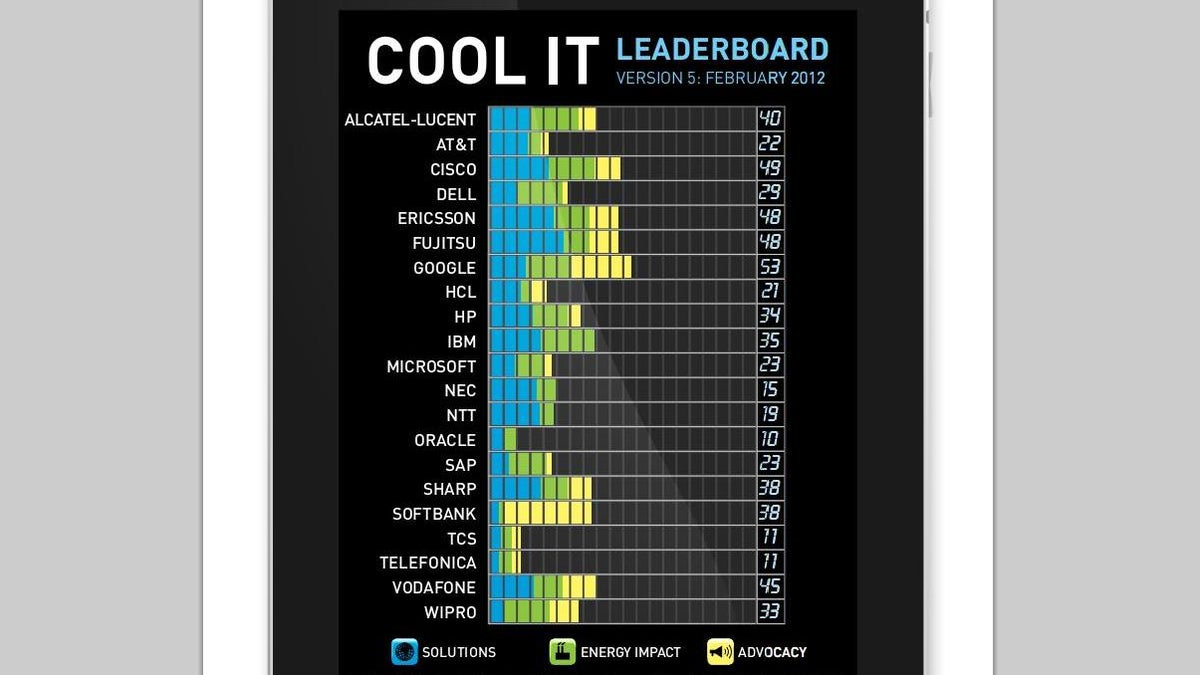Google gets Greenpeace props for work on energy
Greenpeace tries to cast some light on the energy sources behind data centers and commend IT companies that advance clean energy and efficiency through tech. Facebook and Apple aren't quite there yet, it says.

Google received top accolades from Greenpeace for its work advancing cleaner energy, while Apple and Facebook didn't make the environmental watchdog group's IT industry list of leaders.
Greenpeace released the latest of its periodic Cool IT Leaderboard today and singled out the work of Google on renewable energy technology and policy.
Energy consumption from computing, including large data centers, continues to grow rapidly, one reason why Greenpeace has targeted cloud computing companies. "The IT sector might like to consider itself forward-thinking, but it is keeping far too quiet while the dirty energy industry continues to exert undue influence on both the political process and financial markets," said Greenpeace International IT analyst Gary Cook in a statement.
For the most part, IT and Web companies have stayed clear of advocating policies that would advance a cleaner energy system, but a number have taken steps to use cleaner energy sources.
Greenpeace today reported that Google, Cisco, and Dell managed to get 20 percent of their energy use through renewable sources. That's significant given that renewable energy including hydro plants is less than ten percent of the electricity generating mix in the grid at large. Companies that don't disclose their energy sources fall in rankings, as was the case with Oracle.
In addition to pressuring IT companies to use cleaner energy, Greenpeace seeks to highlight companies that develop products geared toward efficiency or cleaner energy. "IT energy-related 'smart' solutions have the ability to put consumers in command of their electricity use and pave the way for dramatic improvements in energy efficiency and use of renewable energy," Greenpeace said in a statement.
For that reason, Apple and Facebook weren't included on the list. However, Facebook next year will make the list because last fall announced a program with energy efficiency company Opower to develop a Facebook app, due this spring, where people can compare and try to lower their personal electricity use. Facebook has also designed a very efficient data center and is sharing the blueprints with the industry.

